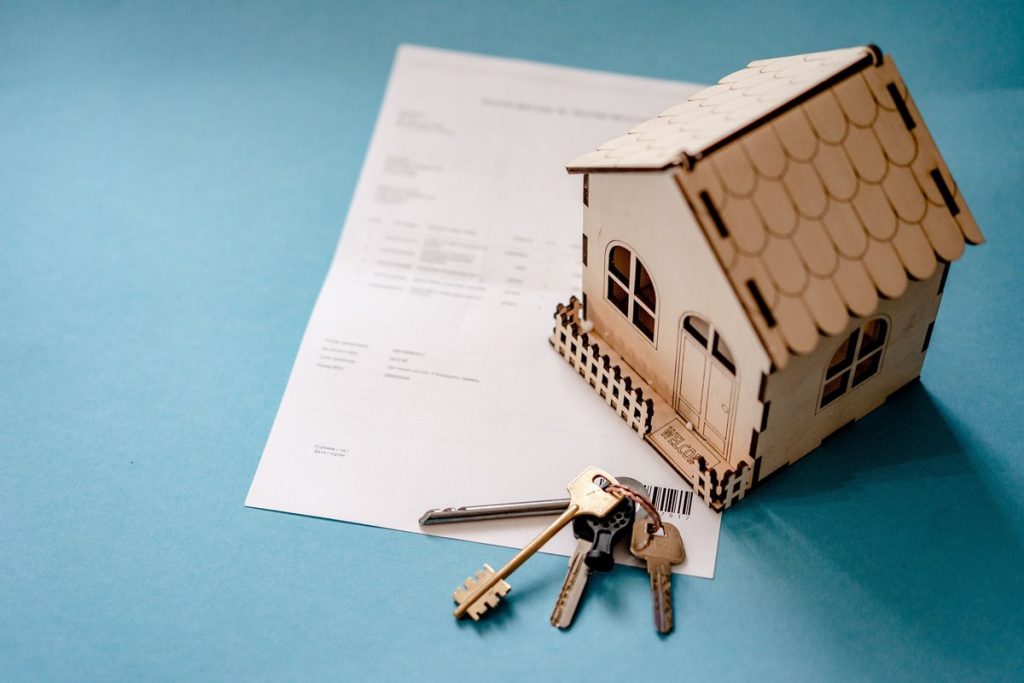Owning a home is a profound aspiration that represents stability, comfort, and the realization of long-term dreams. As you embark on this journey, securing a mortgage becomes a pivotal step, and the role of an improved credit score cannot be overstated. This comprehensive guide is designed to illuminate the path to homeownership, offering insights, strategies, and steps to secure a mortgage with enhanced credit. Whether you’re a first-time homebuyer or seeking to optimize your financial position, this guide will empower you to navigate the process with confidence and pave the way for a rewarding and successful homeownership journey.
Table of Contents
Introduction to Achieving Homeownership
Owning a home is a significant milestone on the path to financial stability and personal fulfillment. For many, this journey begins with securing a mortgage, and having an improved credit score can play a crucial role in making this dream a reality.
The Importance of Owning a Home
Homeownership is more than just having a place to live; it’s an investment in your future. A home offers stability, the potential for appreciation, and a sense of belonging. This guide will walk you through the steps to secure a mortgage, ensuring that you’re well-prepared for this exciting journey.
Role of Credit in the Mortgage Journey
Your credit score serves as a financial resume that lenders use to evaluate your creditworthiness. It influences the terms of your mortgage, including interest rates and loan options. By improving your credit score, you can unlock better opportunities for homeownership and potentially save thousands of dollars over the life of your loan.
Steps to Enhance Your Credit Score

Before embarking on the mortgage application process, take the time to boost your credit score. A higher credit score not only increases your chances of mortgage approval but also allows you to secure more favorable terms.
Assessing Your Current Credit Status
Begin by obtaining a copy of your credit report from each of the three major credit bureaus—Equifax, Experian, and TransUnion. Review the report for inaccuracies, discrepancies, or any potential red flags that may affect your creditworthiness.
Factors Influencing Your Credit Score
Understanding the components that make up your credit score is essential. Payment history, credit utilization, length of credit history, types of credit used, and recent credit inquiries all contribute to your score. Identifying areas that need improvement will guide your credit enhancement efforts.
Strategies to Boost Your Credit Score
- Pay your bills on time: Timely payments have a significant impact on your credit score.
- Reduce credit card balances: Aim to keep your credit utilization ratio below 30%.
- Avoid opening new credit accounts: Multiple inquiries can lower your score.
- Maintain a diverse credit mix: A mix of credit types, such as credit cards and installment loans, can be beneficial.
By taking deliberate steps to enhance your credit score, you’re positioning yourself for a smoother mortgage approval process and favorable loan terms.
Understanding the Mortgage Application Process

With an improved credit score in hand, it’s time to explore the mortgage application process and understand the various steps involved.
Exploring Mortgage Options
Before applying for a mortgage, familiarize yourself with different types of mortgages available. Fixed-rate mortgages offer stable payments over time, while adjustable-rate mortgages may have lower initial rates that adjust periodically. Choose the option that aligns with your financial goals and risk tolerance.
Gathering Financial Documentation
Mortgage lenders require specific financial documents to assess your eligibility. These may include:
- Proof of income: Pay stubs, tax returns, and W-2 forms.
- Assets: Bank statements, investment accounts, and retirement savings.
- Debts: Information on existing loans, credit card balances, and other liabilities.
Gathering these documents ahead of time streamlines the application process and demonstrates your financial readiness to lenders.
Timeline and Application Requirements
The mortgage application process typically involves several stages:
- Pre-qualification: Provide basic financial information to estimate your borrowing capacity.
- Pre-approval: Submit detailed financial documents for a more accurate assessment.
- Application: Complete a formal mortgage application with your chosen lender.
- Underwriting: Lender evaluates your financial profile and verifies the information provided.
Throughout these stages, your improved credit score will work in your favor, increasing your chances of mortgage approval and favorable terms.
Navigating the Mortgage Approval Stage

As you progress through the mortgage application process, your enhanced credit score becomes a valuable asset in securing approval from lenders.
Pre-Approval and Credit Evaluation
During the pre-approval process, lenders conduct a thorough credit evaluation. They review your credit score, credit history, and financial documents to determine your creditworthiness. With an improved credit score, you present yourself as a responsible borrower and reduce the perceived risk for the lender.
Criteria Considered by Lenders
Lenders assess several factors when considering your mortgage application:
- Debt-to-income ratio: Your monthly debt payments relative to your income.
- Loan-to-value ratio: The ratio of the loan amount to the appraised value of the home.
- Employment stability: Your work history and income consistency.
- Credit history: A track record of your credit management.
An improved credit score enhances your overall financial profile and contributes to a positive evaluation by lenders.
Benefits of a Higher Credit Score
Having an improved credit score brings several advantages during the mortgage approval process:
- Lower interest rates: A higher credit score often translates to lower interest rates.
- Access to better loan programs: Improved credit opens the door to more favorable loan options.
- Negotiation power: A strong credit score gives you leverage when discussing terms with lenders.
By securing a mortgage with enhanced credit, you position yourself for a more affordable homeownership journey and long-term financial success.
Exploring Down Payment Choices

While an improved credit score is crucial, a down payment is another essential aspect of securing a mortgage and achieving homeownership.
Significance of Down Payments
A down payment is a percentage of the home’s purchase price paid upfront. It not only reduces the amount you need to borrow but also demonstrates your financial commitment to the investment. Lenders often require a down payment, and the amount can vary based on the loan type and other factors.
Creative Ways to Save for Down Payment
Saving for a down payment can be a challenge, but with determination and strategic planning, you can reach your goal sooner:
- Establish a dedicated savings account: Set up a separate account solely for your down payment funds.
- Cut unnecessary expenses: Analyze your budget and identify areas where you can cut back.
- Generate extra income: Consider a part-time job, freelancing, or selling unused items.
- Explore down payment assistance programs: Some programs offer financial help for qualified buyers.
Choosing the Right Mortgage for You

With an enhanced credit score and a solid down payment plan in place, it’s time to select the right mortgage that aligns with your needs and goals.
Fixed vs. Adjustable Rate Mortgages
Fixed-rate mortgages offer stability, as your interest rate remains constant throughout the loan term. On the other hand, adjustable-rate mortgages (ARMs) have an initial fixed-rate period followed by rate adjustments. Evaluate your risk tolerance and financial situation to determine which option suits you best.
Mortgage Terms and Interest Rates
Mortgages come with various term options, such as 15, 20, or 30 years. Shorter terms often come with lower interest rates but higher monthly payments. Longer terms offer lower monthly payments but may result in higher overall interest costs. Consider your long-term financial objectives when choosing a term.
Managing Costs Associated with Mortgages
While an improved credit score enhances your mortgage terms, it’s important to be aware of the costs associated with obtaining a mortgage.
Understanding Closing Costs
Closing costs encompass various fees associated with finalizing the mortgage agreement. These may include appraisal fees, title insurance, attorney fees, and more. Prepare for these expenses by reviewing the estimated closing costs provided by your lender.
Insights into Private Mortgage Insurance (PMI)
If your down payment is less than 20% of the home’s purchase price, lenders may require you to pay for private mortgage insurance (PMI). PMI protects the lender in case you default on the loan. Understand the costs and requirements of PMI, and explore options to eliminate it as you build equity in your home.
Sustaining Enhanced Credit During Homebuying

While navigating the homebuying process, it’s essential to maintain the improved credit score you worked hard to achieve.
Tips to Maintain Improved Credit
- Continue paying bills on time: Consistent payments contribute to your credit health.
- Avoid taking on new debt: Additional debt can impact your debt-to-income ratio.
- Monitor your credit reports: Regularly review your credit reports for accuracy.
- Limit credit inquiries: Limit new credit applications to avoid negative effects on your score.
Finalizing the Path to Homeownership

As you approach the final stages of the homebuying process, it’s time to prepare for homeownership.
Closing the Mortgage Process
During the closing, you’ll sign various documents and pay any remaining closing costs and down payment. This is the final step before officially becoming a homeowner.
Celebrating Your Journey: Becoming a Homeowner
Owning a home is a remarkable achievement. Embrace the sense of accomplishment and the opportunities that come with homeownership. From personalizing your space to building equity over time, homeownership marks a significant milestone on your financial journey.
Conclusion: Embracing Your Achievement
Securing a mortgage with an improved credit score is a testament to your financial responsibility and dedication. By following the steps outlined in this guide, you’ve not only secured a place to call home but also laid the foundation for a strong financial future. As you embark on this exciting homeownership journey, remember that your efforts to enhance your credit have paid off in more ways than one.


